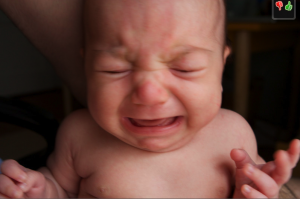When my little girl D was about two weeks old, I noticed something strange while I was nursing her. When I would focus completely on her, anticipating any issues that might arise with our new feeding dance, things went smoothly. But when I allowed myself to get distracted, letting my mind wander to things I wanted to get done or reflecting on my day, she would invariably pop off, requiring more effort from both of us to continue the feeding session.
Why this happened, I’m still not sure. But as I came to this awareness, I heard two words punctuating the constant stream of chatter in my head. “Pay Attention,” they advised.
The voice was not my own, and I don’t believe it was my daughter’s either. Wherever they came from, these instructions have never failed me.
When D is having a rough time, I am able to soothe her much more quickly by tuning in completely. I’ve noticed that the quality of my presence is more important in addressing D’s needs than any other factor.
As time passes by and I learn D’s patterns and preferences, it’s easy to take for granted how well I can meet her needs. But it is precisely in those minutes that I switch to autopilot where something gets lost. I invariably find myself soothing an unanticipated upset or playing catch up in some unanticipated way. Afterward, I remember those two important words: pay attention.
Our baby girl is growing so quickly, blossoming into a person in ways I couldn’t have anticipated just a short month ago. It’s easy to miss even her milestones – her first roll, her first crawl. Paying attention helps me to appreciate and record the important moments we share together.
Above all, the more I pay attention, the more I can appreciate just how lucky I am to be her mom.


